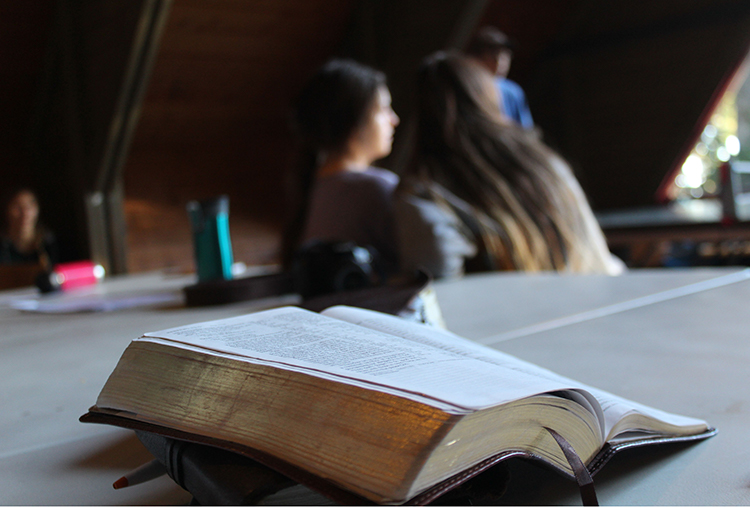Christian Decision-Making: Start by Tracking Your Time

Christian Decision-Making is a course that all Quest students take in their second semester. Quest associate Matt Kliever unpacks the first assignment students get to tackle, and why it matters so much.
Ready for an experiment?
Pick a week this month. Any 7 days in a row will do. And get yourself a daily planner – either a hard copy or an app of some sort. Now go through the week as you normally would and simply record what you did.
Easy, right? Whatever you do, just don’t change your plans for this experiment – if you were going to climb a mountain, read a book, hang out with friends, or volunteer at a local non-profit (all things you might be doing if you come to Quest), then do exactly that and write it all down. By the end of the week, you will have an accurate record of what you actually ended up deciding to do. And at the same time you have just finished part one of an assignment for the Christian Decision-Making class in Quest.
Everything you do is a result of decisions.
Sounds simple, but let’s unpack it a little bit: a result of whose decisions? Was it God’s will? My will? Your will? And were the decisions deliberate or automatic? Conscious, subconscious, or unconscious? Do they reflect a mind that understands scripture and a heart that desires to please God? Do they fall prey to common psychological illusions and prejudices?

You may be surprised at what you find.
Like students who come to Bible College intending to grow their Bible knowledge and solidify their faith, yet discover on their time record that for every hour they spent intentionally deepening their relationship with God, they decided to spend ten or eleven hours playing video games or finding ways to just ‘pass the time.’
Or like those who feel overwhelmed in their struggle with old destructive habits, but learn that the times they give in are incredibly predictable: every evening that they skipped supper, they ended up making less-than-awesome choices before the end of the day.*

And that’s what an assignment like this is designed to do:
reveal things.
Like revealing that our priorities aren’t always what we think they are – or even what we would like them to be. Or on the more encouraging side, revealing that our failures often come with warning signs. And then there’s the issue that isolated decisions are a bit of an illusion, and each one is more affected by the ones before it than perhaps we ever knew – or are really comfortable with.

The great news? An assignment like this helps us draw accurate conclusions, learn new things about ourselves, and make life changes that will really matter. Put that in the context of supportive peers and mentors who are pursuing life in Christ and going on amazing adventures together (a.k.a. Quest) and you’re setting yourself up for a lifetime of learning to make good, God-honoring decisions.
Quest is currently accepting applications for Fall 2020’s cohort. Learn more about Quest.
* These stories are not meant to be descriptions of specific individuals, but are results typical of many students’ experiences.

